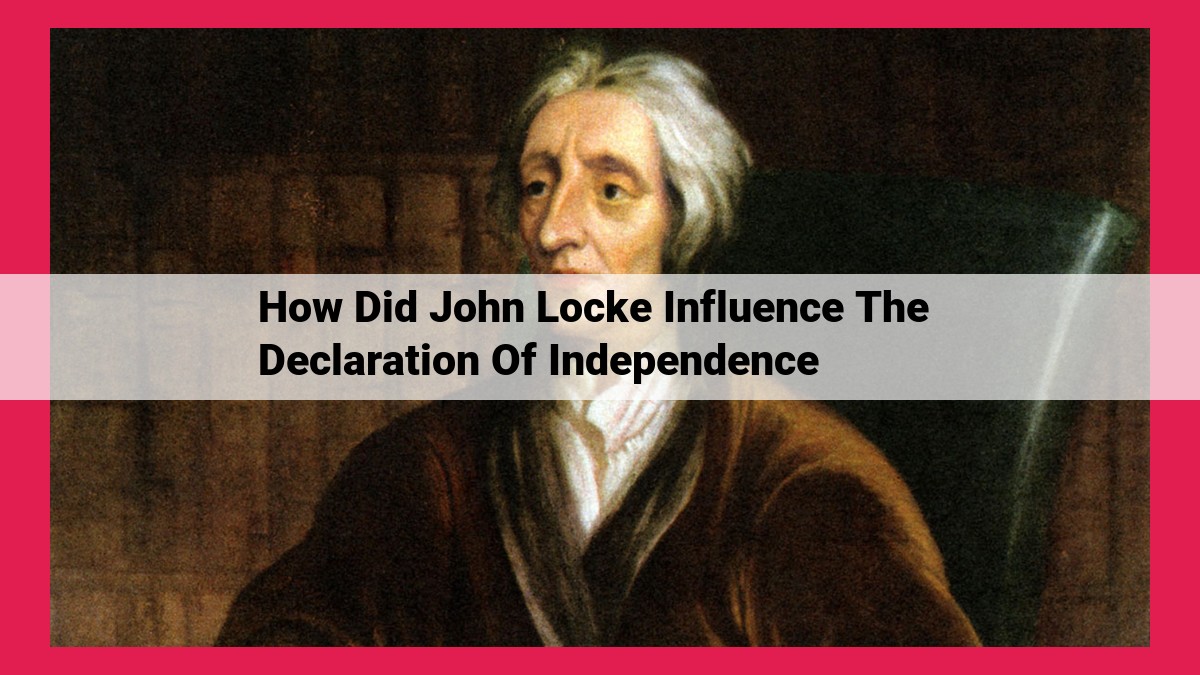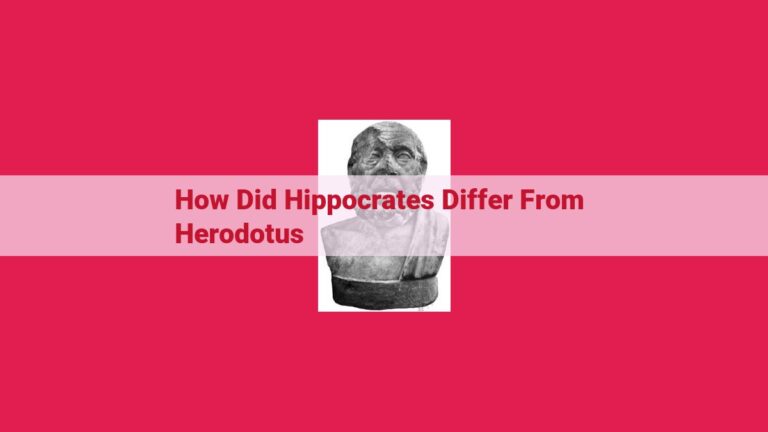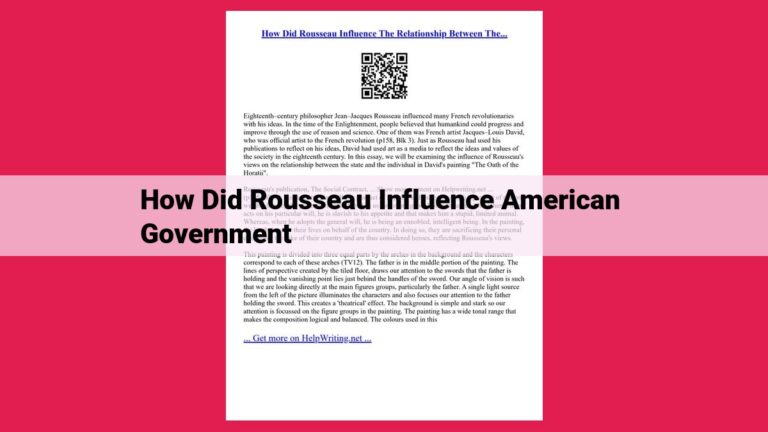John Locke’s Enduring Impact On The Declaration Of Independence: Natural Rights, Social Contract, And The Foundations Of American Ideals

John Locke’s philosophies heavily influenced the ideals expressed in the Declaration of Independence. Locke’s belief in inherent natural rights, such as life, liberty, and property, is reflected in the Declaration’s assertion that individuals possess unalienable rights. Locke’s social contract theory, where government authority stems from the consent of the governed, aligns with the Declaration’s declaration that governments derive their power from the people. Furthermore, Locke’s emphasis on life and liberty as fundamental rights, as well as his endorsement of revolution against oppressive governments, influenced the Declaration’s call for freedom and the right to change unjust regimes.
Locke’s Natural Rights and the Birth of American Democracy
In the annals of political thought, John Locke’s ideas have left an indelible mark, influencing the foundations of modern democracies, including the United States. His belief in inherent natural rights has reverberated through centuries, shaping the very fabric of the Declaration of Independence.
Locke’s profound insights centered on the idea that all individuals possess certain unalienable rights from birth. He argued that these rights are bestowed by nature and exist independently of any government. Paramount among these were life, liberty, and property. These rights, he asserted, are fundamental to human existence and cannot be forfeited or surrendered.
The Declaration of Independence, a pivotal document in American history, echoes Locke’s principles with remarkable clarity. It proclaims, in its immortal words, that all human beings are “endowed… with certain unalienable Rights.” These rights, the Declaration states, include the pursuit of “Life, Liberty, and the pursuit of Happiness.”
This alignment between Locke’s philosophy and the Declaration of Independence underscores the profound impact Locke’s ideas have had on the development of American democracy. The Declaration’s assertion of these natural rights became a cornerstone of American law and society, serving as a guiding force for the nation’s founders and subsequent generations.
Locke’s Social Contract Theory and the Declaration of Independence: The Foundation of Consent
In the realm of political philosophy, John Locke’s social contract theory stands as a cornerstone of democratic thought. This theory asserts that legitimate government authority originates from the people’s consent. This concept found profound resonance in the Declaration of Independence, which boldly proclaimed that governments “derive their just powers from the consent of the governed.”
Locke envisioned society as an agreement among individuals to form a government that would safeguard their natural rights. This social contract was based on the idea that the government existed to serve the will of the people, not to oppress them. Crucially, Locke believed that if a government failed to fulfill its obligations, the people retained the right to alter or abolish it.
The Declaration of Independence echoes this principle in its assertion that governments are instituted “to secure… Life, Liberty and the pursuit of Happiness.” By emphasizing the people’s consent as the source of government power, the Declaration established the United States as a nation founded on the bedrock of Locke’s social contract theory.
This concept of consent underscores the crucial importance of elections and representative government. By electing officials, the people express their consent and entrust them with the responsibility to act in their best interests. This accountability ensures that governments remain responsive to the will of the populace and prevents them from becoming tyrannical.
Locke’s social contract theory and the Declaration of Independence’s articulation of consent of the governed have had a profound impact on democratic societies worldwide. These principles continue to shape our understanding of the relationship between citizens and their governments, reminding us that legitimacy stems from the people’s will and that accountability is paramount in any flourishing democracy.
Life, Liberty, and the Pursuit of Happiness: Foundational Rights in Locke’s Philosophy and the Declaration of Independence
In the annals of political thought, John Locke’s writings hold an esteemed place. His ideas on natural rights, consent of the governed, and the limits of government power profoundly shaped the intellectual landscape of the Enlightenment era. These concepts resonated deeply with the American colonists, culminating in the drafting of the Declaration of Independence, a transformative document that asserted their fundamental rights and aspirations.
Central to Locke’s philosophy was the belief in inherent natural rights bestowed upon every individual from birth. Among these, he emphasized the importance of life and liberty as indispensable to human flourishing. He argued that individuals possess inherent value and dignity, deserving protection from the arbitrary exercise of government authority.
The Declaration of Independence echoes these sentiments, declaring that all humans are “endowed by their Creator with certain unalienable Rights, that among these are Life, Liberty, and the Pursuit of Happiness.” This assertion underscores the founders’ belief in the paramount importance of these rights, which they considered inalienable, meaning they could not be taken away by any government or authority.
Locke further argued that governments derive their legitimate authority from the consent of the governed. This principle is embedded in the Declaration of Independence’s assertion that governments are instituted “to secure these Rights,” and that when governments fail to fulfill this purpose, the people have the right to alter or abolish them.
By highlighting the sanctity of life, liberty, and the pursuit of happiness, both Locke’s philosophy and the Declaration of Independence articulated a vision of a society where individuals enjoy fundamental freedoms and where governments are accountable to the people they serve. These ideals continue to inspire and guide political discourse and institutions around the world today, ensuring that the pursuit of a just and equitable society remains an ever-evolving journey.
Revolution and Regime Change
- Explain Locke’s belief in the right to rebel against governments that violate natural rights.
- Discuss how the Declaration of Independence declares the people’s right to “alter or abolish” destructive governments.
Locke’s Legacy of Revolution and Regime Change
In the annals of political philosophy, John Locke stands as a towering figure, his ideas having profoundly shaped the course of democracy and revolution worldwide. His unwavering belief in the inherent natural rights of individuals, including the right to life, liberty, and property, provided the bedrock for the Declaration of Independence’s assertion that all humans are “endowed… with certain unalienable Rights.“
Locke’s notion of revolution was not merely a theoretical concept; it was a moral imperative when governments overstepped their bounds. He believed that people had the inherent right to rebel against governments that violated their natural rights. This concept was echoed in the Declaration of Independence, which declared that the people had the right to “alter or abolish” governments that had become “destructive” to their ends.
The American Revolution stands as a testament to Locke’s profound influence. The Declaration of Independence, drafted by Thomas Jefferson, explicitly cited Locke’s ideas on natural rights and the right to revolution. Jefferson’s immortal words, “We hold these truths to be self-evident, that all men are created equal, that they are endowed… with certain unalienable Rights,” bore the unmistakable imprint of Locke’s philosophy.
Locke’s legacy continues to resonate today. His belief in the right to revolution remains a powerful force for change, inspiring movements for democracy and self-determination around the globe. The American Revolution, with its Lockean foundations, serves as a beacon of hope for those who dare to fight for their inalienable rights. And as long as governments trample upon the natural rights of individuals, Locke’s call for revolution will continue to echo through the corridors of history.
Locke’s Legacy: The Foundation of American Democracy
Democracy and Representative Government
In his seminal work, Two Treatises on Government, John Locke laid out his vision for the ideal form of government: one that protects the natural rights of its citizens, such as life, liberty, and property. Locke believed that the purpose of government should be to secure these rights for all individuals and to promote the common good.
The Declaration of Independence, drafted by Thomas Jefferson and his fellow Founding Fathers, embodies Locke’s principles of government. It declares that all individuals are endowed by their Creator with certain unalienable rights, including “Life, Liberty, and the pursuit of Happiness”. These rights cannot be taken away or denied by any government.
The Declaration of Independence also establishes the United States as a democracy and a representative government. This means that the people of the United States have the power to choose their leaders and to hold them accountable for their actions. This form of government aligns with Locke’s belief that the consent of the governed is the only legitimate basis for government authority.
Locke’s ideas about _democracy and representative government_ have had a profound impact on the development of the United States and its constitutional framework. The Declaration of Independence and the U.S. Constitution both reflect Locke’s belief in the importance of _individual rights_, the _consent of the governed_, and the _rule of law_. These principles continue to serve as the foundation of American democracy today, ensuring that the government remains accountable to the people it serves.





